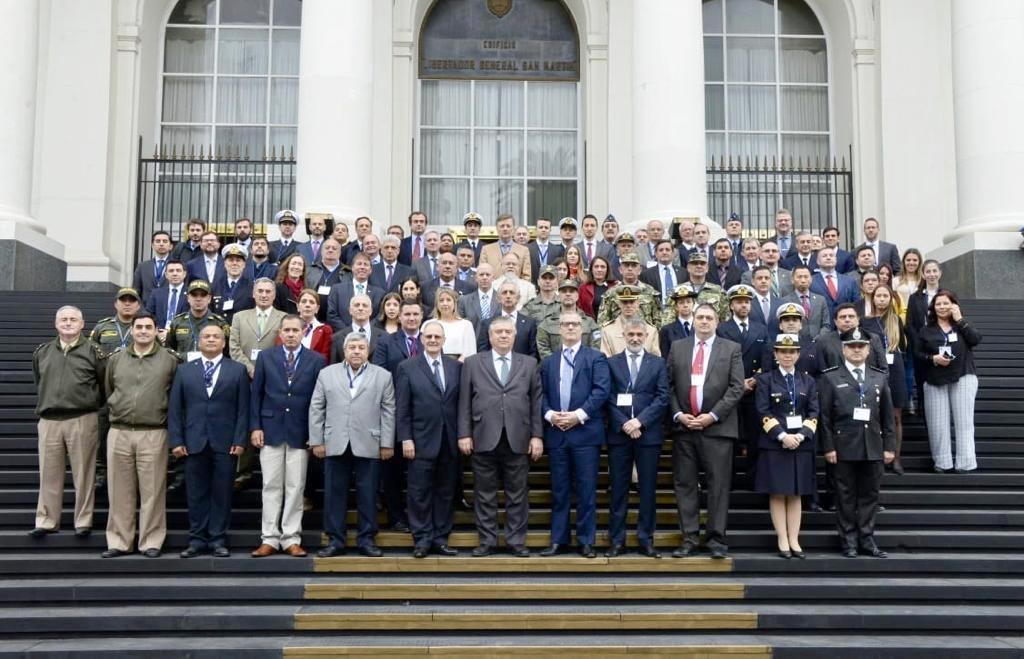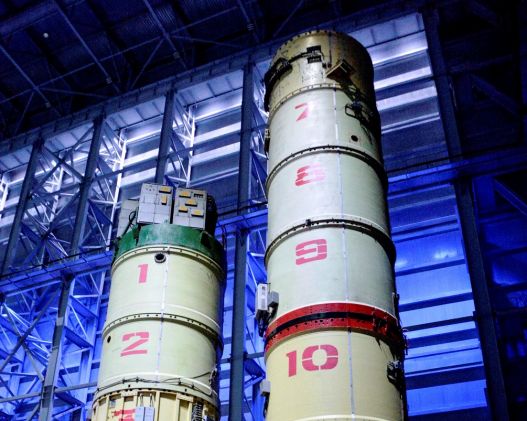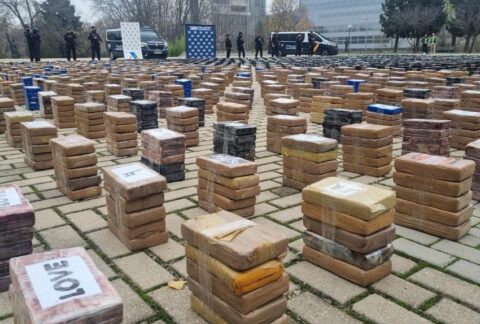Intelligence reveals a vessel will transport a large amount of hydrogen cyanide to Isla Roja, and that the poisonous and flammable substance is stored in bottles with fake labels. There’s a risk the compound could be used in terrorist activities. After a combined operation, military and civilian experts from Argentina, Chile, Colombia, Panama, Paraguay, and the United States detained the vessel and the raw material, which could have been a great threat for the security of South America.
Under the framework of the Proliferation Security Initiative (PSI), the fictitious operation, based on an imaginary map, was the scenario for the Tabletop Exercise for Multilateral Counterproliferation 2019 — PSI 2019. The regional operation positioned six countries identified by different colors in Isla Roja. The exercise, carried out June 11-13, was designed and organized by the Argentine Ministry of Defense and the U.S. Department of Defense, in Buenos Aires. Brazil attended as an observer.
PSI brings together more than 100 countries to prevent trafficking of weapons of mass destruction (WMD), including their components and related material. This initiative allows member nations to collaborate and develop legal, diplomatic, economic, land, and maritime tools to combat the flow of WMD that threatens the international community’s security. Argentina joined the organization in 2005.
During the exercise, representatives of participating countries worked at the maritime interdiction roundtable to counter the proliferation of illicit exports and the transport of raw material for chemical weapons,” said to Diálogo Hugo Armellino, director of the Sensitive Material Comptroller’s Office at the Argentine Ministry of Defense.
“We analyzed cases the United States presented as an opportunity to exchange experiences on conducting interdictions with other countries in the region, including analyzing the source of information, legislation, and authorities who demand action,” Argentine Army Brigadier General (ret.) Guillermo Sevilla, coordinator of exercise PSI 2019, told Diálogo.
“If material for dual use falls under the control of non-official agents, terrorist groups, or organized crime rings, they become a serious risk to the survival of humanity,” said Gen. Sevilla. “Terrorist organizations use WMD on a small scale to achieve their goals. There might be criminal groups that might threaten a government, organization, or individual with their use if their demands are not met,” he added.

Shipment interception capabilities cover a wide array of multilateral and bilateral agreements and treaties, as well as UN resolutions. “It’s the duty of each PSI member nation with production, commercial, and financial controls to disrupt, or at least hamper, these organizations’ activities,” said Gen. Sevilla.
In addition to learning about the threat of WMD, terrorist organizations’ innovation, financial proliferation, the armed forces’ efforts to manage dangerous shipments, and devising concrete tools, military and civilian experts agreed to optimize the exercises. Each country agreed to have their vessels or aircraft registered if they are suspected of shipping WMD.
In addition, nations are committed to strengthen exchanges of sensitive information and the control of their exports. “Legislation to support the armed and security forces’ legal actions is necessary in every case, so they can fulfill their interception role in every scenario, whether it’s land, maritime, riverine, or air,” concluded Gen. Sevilla.









